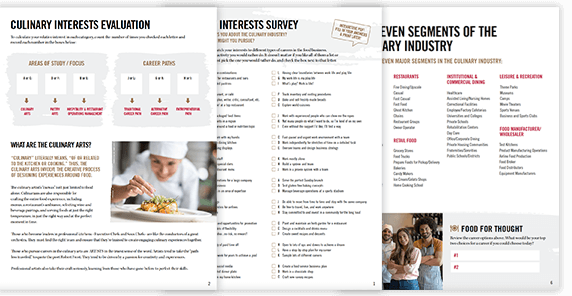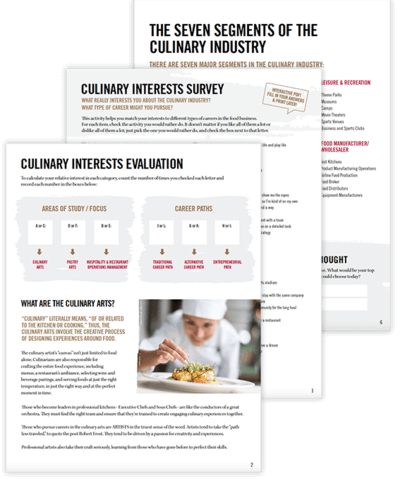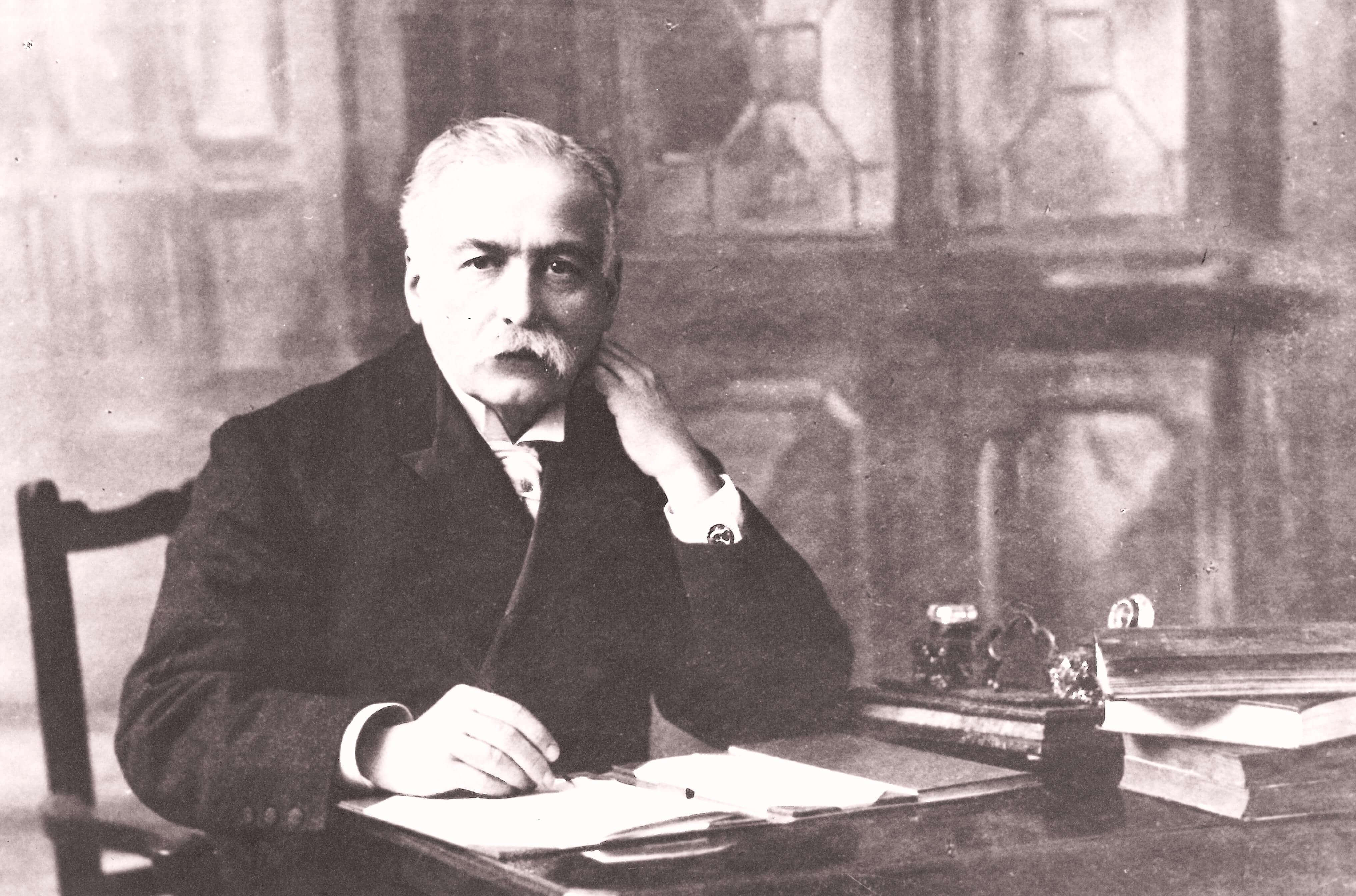A Short Bio of Auguste Escoffier

Before Auguste Escoffier, the famous French chef, the modern restaurant as we know it today simply didn’t exist. Canonized for his 62 years of service in the food industry, Escoffier is still considered to have had the longest career of any chef.
From codifying French cooking techniques and reformulating Marie-Antonin Careme’s style of Haute Cuisine to creating the landmark five French mother sauces – the King of Chefs’ revolutionary techniques are still implemented in kitchens around the globe today.
So how exactly did the man become such a titan in the world of culinary arts? Let’s take a dive into the past and find out.
The Early Years
Georges-Auguste Escoffier was born in 1846 in the French village of Villeneuve-Loubet, just outside of Nice. Growing up, he had a passion for art, but his talent for cooking was noticed when he began an apprenticeship at his uncle’s restaurant in Nice at the age of 12. Seven years later, the young chef showed such skill in the kitchen that he was taken in by the restaurant Le Petit Moulin Rouge in Paris.
At that time, the idea of haute cuisine really didn’t exist. Cooking was not seen as a particularly prestigious profession, and the foodservice industry was quite disorderly and unclean. And it may have remained a chaotic industry if Escoffier hadn’t revolutionized how restaurant kitchens were organized.
Creating the Kitchen Brigade System
When the Franco-Prussian War broke out in 1870, Escoffier served a brief stint as an army chef.
It was during his time in the army that Escoffier realized the importance of canning and preserving food – especially since fresh ingredients were in short supply. He tested various canning methods for meats and sauces and eventually conceived a technique for preserving tomato sauce in champagne bottles.
The influence of army life on his culinary methods didn’t stop there. His experience in the military also showed him how groups could be organized and coordinated towards achieving a common goal.
After the war, Escoffier re-organized his kitchen into a military-like brigade system, which is the basis of the kitchen hierarchy now established in modern restaurants. Cooks were assigned specific roles and locations and were headed by supervisors – the generals of the kitchen. They ensured every station was working in conjunction with each other. Terms we use today such as Chef de Cuisine, Sous-Chef, and Saucier were pioneered by Escoffier under his kitchen brigade system.
Culinary & Pastry Career Survey
Culinary & Pastry Career Survey
What's your ideal culinary career? Answer 20 simple questions and see if your dream career gets revealed to you.

We’ve compiled of all of the essential questions into one handy guide: Career options, description of skill requirements, and more!


Continued Innovation & Worldwide Fame
In 1890, Escoffier began working with César Ritz, the founder of the famous Ritz-Carlton hotel brand. Ritz became the manager of the notable Savoy Hotel in London and Escoffier was put in charge of the kitchen as head chef.
The Savoy began attracting wealthy and famous clientele and was set as the standard for culinary excellence. Escoffier heightened his reputation by inventing many new dishes that were regularly inspired by hotel guests. On one famous occasion, Escoffier created Peach Melba, a dish to honor the opera singer Nellie Melba during her stay at the hotel.
The dynamic pair would also go on to manage the Hotel Ritz in Paris and the Carlton Hotel in London in 1898. Escoffier’s innovative influence also spread to the front of the house. He stopped the practice of all of the food courses being served at the same time. Instead, food came out in the order it was requested and guests could order specific individual dishes from the menu. Hence, the adoption of the new approach called: à la carte.
Escoffier was also one of the first chefs to organize the kitchen system in 20th-century transatlantic ocean liners. In 1913, he was put in charge of the kitchen on the SS Imperator, an enormous ocean liner transporting guests including Kaiser Wilhelm II of Germany. It was during this encounter that Kaiser Wilhelm reportedly bestowed upon Escoffier the famous moniker “King of Chefs and Chef of Kings”. After congratulating Escoffier on the meal, the Kaiser allegedly proclaimed, “I am the Emperor of Germany, but you are the Emperor of Chefs.”
Charitable Interests & Later Life
In his later life, Escoffier continued to run kitchens through World War I. He also published many cookbooks and kitchen guides over his lifetime, including prominent ones such as:
- Le Guide Culinaire (1903)
- Le Livre des Menus (1912)
- Le Carnet d’Épicure (A monthly chef’s magazine published from 1911 to 1914)
- L’Aide-Mémoire Culinaire (1919)
However, Escoffier’s interests and influence also spread beyond the kitchen to a number of social causes. A humanitarian at heart, Escoffier took a strong stance in fighting against poverty. As early as 1890, Escoffier would give unserved food from the Savoy Hotel to the “Little Sisters of the Poor” in London daily. In addition, he started the first fundraising dinners for charitable causes such as helping retired chefs in need.
Escoffier continued his leadership role at the Carlton Hotel until retiring in 1920. He helped found the World Association of Chef Societies in 1928 and became the first president of the organization.
On February 12, 1935, days after the death of his wife, Auguste Escoffier passed away in Monte Carlo at the age of 88.
The Legacy Continues: Auguste Escoffier School of Culinary Arts
Today, Escoffier’s legacy lives on in The Escoffier Museum of Culinary Art and Foundation, and the Auguste Escoffier School of Culinary Arts – which has campuses in Austin, Texas, Boulder, Colorado, and offers online culinary and pastry programs.
Escoffier’s influence is infused into our graduates around the world through our teaching methods and standards of excellence. His great-grandson, Michel Escoffier, serves as a member of our school’s advisory board.
Auguste Escoffier was not just a visionary during his time period, but his techniques and methods continue to be relevant today. Through our comprehensive catalog of online cooking classes and programs in culinary and pastry arts, we continue to safeguard Escoffier’s legacy and his tradition of culinary greatness.
Enjoyed this article? Here are a few others.
- A Message From Michel Escoffier on Auguste Escoffier’s 170th Birthday
- Our Guide To Escoffier’s 5 Mother Sauces
- New Book Chronicles The Life Of Auguste Escoffier
This article was originally published on August 18, 2014, and has been updated.


